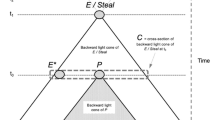Abstract
In an essay which is due to appear in a volume of which I am the subject in The Library of Living Philosophers,1 Professor O’Connor defends a form of determinism which he takes to be inconsistent with the freedom of the will. As he first presents it, this form of determinism is said by him not to be scientific; it does not entail that any event is precisely predictable. It clearly cannot be the case that every event is actually predicted, and while we know enough to dismiss the possibility of our predicting every microscopic event, we do not know enough to be able to claim that we could predict every macroscopic event, if we took enough trouble. To say that every macroscopic event is predictable in principle, or, in other words, that we could predict it if we knew enough is a mere tautology, since ‘knowing enough’ in this context means ‘knowing enough to predict’. On this point O’Connor and I are agreed. He adds the further argument, that ‘any scientific prediction requires measurements; and measurements can only be made within certain specifiable limits of accuracy’. I should prefer to say that scientific measurements of a particular quality covered a range of values, rather than imply that they are bound to be inaccurate, but, however one phrases it, the argument does show that precise prediction even of macroscopic events, is not attainable.
Access this chapter
Tax calculation will be finalised at checkout
Purchases are for personal use only
Preview
Unable to display preview. Download preview PDF.
Similar content being viewed by others
Notes
C. S. Peirce, Collected Papers of C. S. Peine, Vol. VI (edited by C. Hartshorne and P. Weiss) (Harvard University Press, 1968)), p. 46.
P. F. Strawson, ‘Freedom and Resentment’, Proceedings of the British Academy, vol. xlviii (1962), pp. 1–25, Reprinted in
G. Watson (ed.), Free Will (Oxford University Press, 1982).
A. J. Ayer, ‘Freedom and Necessity’, Polemic, no.5 (1946). Reprinted in A. J. Ayer, Philosophical Essays (London: Macmillan, 1954); also in G. Watson (ed.) Free Will.
Thomas Hobbes, Leviathan (1651), ch.XXI.
A. J. Ayer, Freedom and Morality and other essays (Oxford University Press, 1984).
Editor information
Editors and Affiliations
Copyright information
© 1991 the estate of A. J. Ayer
About this chapter
Cite this chapter
Ayer, A.J. (1991). Free-Will and Determinism. In: Mahalingam, I., Carr, B. (eds) Logical Foundations. Palgrave Macmillan, London. https://doi.org/10.1007/978-1-349-21232-3_13
Download citation
DOI: https://doi.org/10.1007/978-1-349-21232-3_13
Publisher Name: Palgrave Macmillan, London
Print ISBN: 978-1-349-21234-7
Online ISBN: 978-1-349-21232-3
eBook Packages: Palgrave Religion & Philosophy CollectionPhilosophy and Religion (R0)



